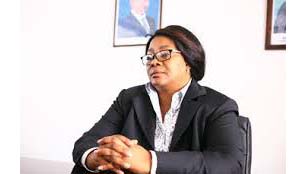By RABECCA CHIPANTA and CHRISTINE MWAABA —-
ZAMBIA’S High Commissioner to India Judith Kapijimpanga has said President Edgar Lungu appreciates the role development journalism plays in the his economic growth agenda.
Ms Kapijimpanga said several development journalists have excelled under the leadership of President Lungu as they became salable thinkers of eminence.
She said development journalism should celebrate the efforts of the Government or individuals who were putting in new ideas to see the advancement in technology, economic emancipation, human rights and among others.
This is contained in a statement issued by First Secretary for Press at the Zambian Mission in India Bangwe Naviley.
Ms Kapijimpanga noted with pleasure that students from Zambia were taking greater interests in pursuing development journalism studies in India.
She said this when the Indian Institute of Mass Communications (IICM) Development Journalism students Victor Mwila of Zambia News and Information Services (ZANIS) and Maybin Katungulu of Yatsani Radio called on her.
Ms Kapijimapnga urged the students to remain focused and industrious as they returned to their respective stations in Zambia to accomplish innovative expertise.
She said that the world was expeditiously running away from the concept of ‘Bad news makes good news’ as citizens were tired of seeing wars, riots, earthquakes, deadly diseases among others.
“Development Journalism is not easy as it needs a journalist to read widely, research, perform leg work and put in more effort to bring out analytical facts in a fascinating approach for citizens to appreciate. President Edgar Lungu appreciates the role Development Journalism plays, especially that he equally obtained a certificate in Journalism at Evelyn Hone College on top of his many scholarly credentials,” she said.
Meanwhile the International Labour Organisation has urged media houses in Zambia to promote decent working conditions for journalists.
ILO director for Zambia, Malawi and Mozambique, Alexio Musindo said journalists were key drivers of development strategies and that their role needed to be acknowledged in terms of remuneration and good working conditions that paved way for social and economic advancement.
“Media houses need to focus on promoting decent jobs for journalists because they are also employees,” he said.
He said there was need to promote job opportunities that were productive and delivered a fair income, security in the workplace and social protection for all workers.
Mr Musindo said this during a training course for media professionals on communicating labour rights in Livingstone yesterday.
He said decent work remained a priority and was at the centre of the Sustainable Development Goals (SDGs), which recognised the importance of decent work in alleviating poverty.







